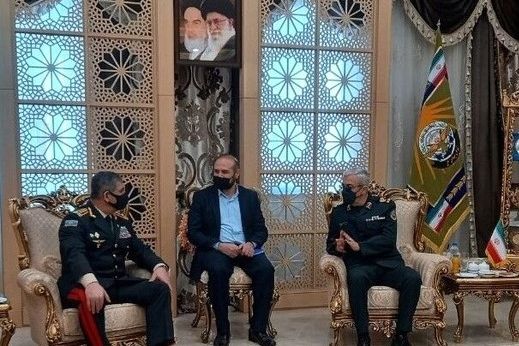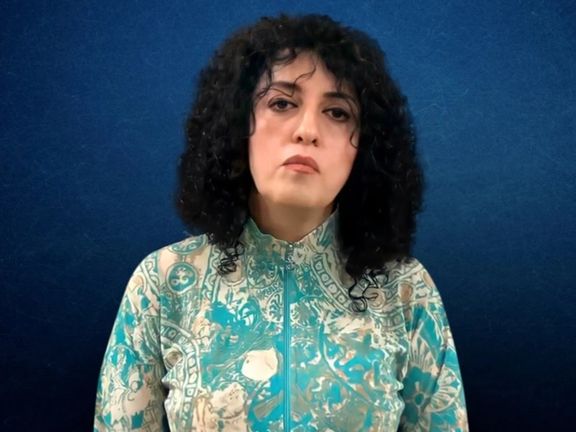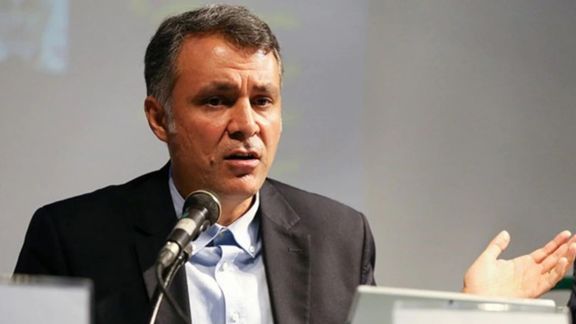Iran, Azerbaijan To Build Border Bridge To Boost Trade Routes

Iran and Azerbaijan are set to construct a bridge on Astarachay River running along the joint border as part of their plans to increase road transit between the two countries.

Iran and Azerbaijan are set to construct a bridge on Astarachay River running along the joint border as part of their plans to increase road transit between the two countries.
The deal for the joint project was signed on Tuesday by Deputy Road Minister Kheirollah Khademi and his Azerbaijani counterpart Rahman Hummatov.
Astarachay is a small river that defines part of the border between Iran and Azerbaijan.
Khademi described the construction of the bridge as an important part of the International North–South Transport Corridor that is a multi-mode network of ship, rail, and road route for moving freight across India, Iran, Azerbaijan and Russia.
He added that the Astarachay Bridge will be about 100 meters long with a width of 31 meters and connects the Iranian city of Astara near the Caspian Sea to Azerbaijan’s capital Baku.
The agreement was inked while Iran’s Road Minister Rostam Ghasemi is visiting Azerbaijan to follow up on the implementation of several joint infrastructure projects.
The two countries are also increasing their military cooperation as Azerbaijan’s defense minister was in Tehran upon an invitation by the Islamic Republic’s military.
Earlier on Tuesday, Colonel General Zakir Hasanov held a meeting with Chairman of the Chiefs of Staff of the Iranian Armed Forces Major General Mohammad Bagheri.
The two commanders called the meeting constructive in boosting military ties between the two neighbors without any further details.

There are more than 30,000 idle production plants across Iran that are completely closed or semi-active due to economic and legal issues.
The Iranian president’s deputy for rural development said on Tuesday that many of these units cannot be revived but some 20 to 25 percent can be brought back to production and the supply chain.
Amir-Hossein Madani added that most of these units are from sectors of mining, agriculture and small industries.
He said the priority of the current administration is to activate the stagnant sectors in rural areas.
Madani pointed out that some of these units were closed or underperforming due to the consequences of sanctions, but many of them are not operational because of other financial and legal problems.
According to reports by Iran’s Ministry of Industry, Mine and Trade, during the last Iranian year (from March 20, 2020 to 2021) over 1,500 inactive units returned to the production cycle through various methods such as providing liquidity and facilities, modifications in the production line and management changes.
Iran suffers from a lack of investments and a centralized economy. Pundits say Iran’s economy is at its most dangerous historical pointin the past four decades with rising inflation, lack of liquidity and international sanctions that would not allow Western companies to have any business dealings with Iran.

An Iranian court Tuesday convicted French national Benjamin Briere of espionage, sentencing him to eight years in prison, French news network BFM TV reported.
Briere, 36, has been held in Iran since May 2020, when he was arrested after flying a helicam - a remote-controlled mini helicopter used to obtain aerial or motion images - in the desert near the Turkmenistan-Iran border.
Briere was charged with spying and "propaganda against the Islamic Republic". He had through his lawyers consistently denied wrongdoing.
Briere’s lawyer, Philippe Valent, said the spying charges was the result of a "purely political process", and added that his family was worried about his mental and physical health.
In recent years, Iran's elite Revolutionary Guards have arrested dozens of dual nationals and foreigners, mostly on charges related to espionage and security.
Briere's trial came as the United States and parties to Iran's 2015 nuclear deal, including France, tried to revive the pact after then-US President Donald Trump pulled his country out of the agreement in 2018.
US Special Envoy for Iran Robert Malley told Reuters on Sunday that he could not imagine reaching an agreement without prisoners in Iran being released.
Rights groups have accused Iran of trying to extract concessions from other countries through such arrests. Western powers have long demanded that Tehran free their citizens, whom they say are political prisoners.
Reporting by Reuters

A group of former Iranian prisoners detained because they had converted to Christianity has issued a statement demanding the right to education for Persian-speaking Christians.
In an open letter published on United Nations’ International Day of Education, January 24, they protested to what they called a violation of their basic human rights, including the right to study.
“The Islamic Republic expels Persian-speaking Christians and our children from schools and universities,” they said, noting that this was only one form of discrimination against them. The signatories called on other Iranians not to remain silent about their deprivation of the right to education.
While established Christian churches − including Armenian, Assyro-Chaldean, Greek Orthodox, and Catholic - are allowed to practice, they are required to admit to services only existing members and not to accept converts. New churches cannot be set up.
As they do not use Persian in services these churches have limited appeal to Persian speakers. Iranian Protestants, by contrast, carry out services in Farsi and are sometimes committed proselytizers.
While Iran frowns on Baha’ism, atheism, eastern or esoteric philosophies and cults, the constitution recognizes Christianity, Zoroastrianism and Judaism. Those born into Christian, Jewish or Zoroastrian families enjoy a certain freedom of worship. Armenian and Assyro-Chaldeans Christians, Jews and Zoroastrians all have representatives in the Iranian parliament.

Reporters Without Borders has expressed concern for the lives of three jailed political activists in Iran who have been transferred to detention centers known to mistreat prisoners.
In a statement on Monday, the rights group – also known by their French abbreviation RSF – denounced the transfer of Alieh Motallebzadeh, Narges Mohammadi and Keyvan Samimi Behbahani, describing it as an attempt to break the resistance of these prisoners of conscience.
RSF deputy director Antoine Bernard condemned the move and said it is meant to deprive them of care, as was the case of Baktash Abtin, who died of Covid-19 complications after he was denied timely treatment earlier in January.
Samimi Behbahani was transferred from Evin late last week to Gohar Dasht Prison in Karaj, also known as Rajai Shahr, where mostly murderers and common criminals are held. The 73-year-old has said he will stage a hunger strike, if he is not moved back to Evin, where Iran keeps most of its political prisoners.
Motallebzadeh and Mohammadi were moved from Evin to Qarchak women’s prison, also known as Shahr-e Rey prison, where health and sanitary conditions are very poor with an ill-equipped infirmary and no proper sewer.
Earlier in the week, Mohammadi was sentenced to eight yearsin jail and 70 lashes in a five-minute trial.
Persecution of human rights and political activists and execution have increased since hardliner president Ebrahim Raisi took office last August.

Iranian universities have fired four professors of social sciences in less than a week, in what critics see as further political cleansing of academia.
Sharif University of Technology in Tehran fired Mohammad Fazeli, a professor of sociology on January 21. Then, Shahid Beheshti University dismissed Arash Abazari, lecturing philosophy on the same day, and on January 24 the University of Tehran fired lecturer Reza Omidi and the Iranian human rights news agency broke the news of the dismissal of Arezoo Rahimkhani by the Islamic Azad University in Andimeshk.
The four lecturers and professors were not political activists, and their public record shows they maintained a relatively low profile.
Following the dismissals, while some observers criticized university students for their silence in the face of the firing, some students argued that these and other professors never took part in any campaign to support the rights of hundreds of students who were expelled or harassed for political reasons.
Others criticized professors for their silence, warning that it could be their turn to be fired the next day. Iranian lawyer Mohammad Moghimi opined that the dismissals were a sign of totalitarian rule in the universities.
Hessamoddin Ashna, an aide to former President Hassan Rouhani, wrote in a January 22 tweet that it is not fair and rational to deprive Shahid Beheshti University of a professor such as Mohammad Fazeli. Ashna then encouraged academics to write to President Ebrahim Raisi about the matter.
In another tweet, Ashna said that the dismissals were the result of jealousy among some academics. Others noted that Abazari, a young academic whose book was published by the University of Cambridge Press was dismissed by an old former academic who is alien to modern knowledge.
Meanwhile, former lawmaker Ali Motahari wrote in a tweet on the same day that "firing a knowledgeable and pacifist professor such as Mohammad Fazeli is a threat to freedom of expression." Motahari reminded that his father, a famous ayatollah, was never fired from his university post under the Shah, although he had given a speech against the monarch and had even been briefly jailed for his Islamic political activism.
In the meantime, Javad Safari , a retired professor of Chemistry at the University of Hamadan took his own life reportedly because he was not paid for some time and was not able to make ends meet, social media activists revealed.
An Iranian academic on Twitter wrote that university professors in Iran are being paid around $300 per month, less than what labor groups say is the minimum income needed to survive just above the poverty line.
Pooya Movahhed, a social media activist referred to the Cultural Revolution immediately after the Islamic revolution of 1979 and wrote, since then Iranian officials have been getting rid of modern academics in the interest of their reactionary colleagues who believe in the ideological party line.
Meanwhile, academic Sohrab Salehi warned Higher Education Minister Zolfi on Twitter to be wary that academics are silent in the face of the dismissal of their colleagues. "Those who are silent are more dangerous than those who are vocal. Those who protest still have hope of reforms, but those who are silent do not believe the system can be reformed," he warned.
Cleric and academic Rahmatollah Bigdeli said in a 22 January tweet: "We took part in the revolution so that even Marxist professors would be able to work in universities, but under Presidents Ahmadinejad and Raisi, the universities are getting rid of even [devout] Muslim elites who were once invited by Raisi to come back from abroad and teach at the universities."